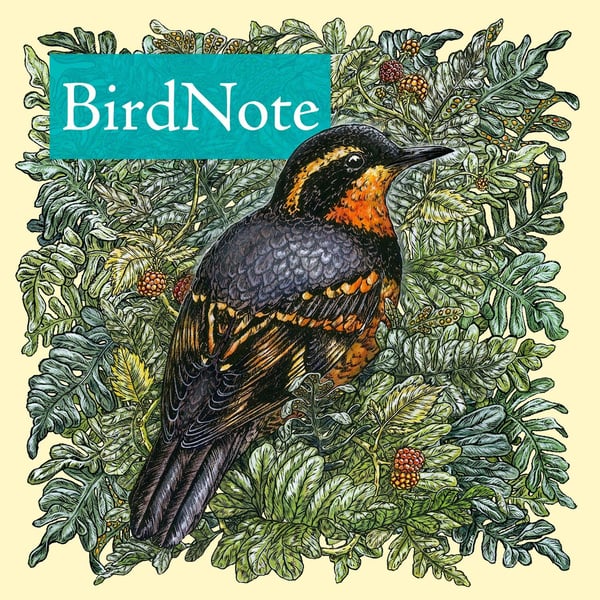Orchard Orioles Band Together
BirdNote Daily
BirdNote
4.6 • 1.2K Ratings
🗓️ 19 May 2025
⏱️ 2 minutes
🧾️ Download transcript
Summary
Transcript
Click on a timestamp to play from that location
| 0:00.0 | This is Bird Note. |
| 0:08.3 | This bird song sounds like a nasally imitation of a robin, |
| 0:12.5 | and the bird singing it is a rusty brown riff on a Baltimore orio. |
| 0:17.2 | Called the orchard orio, males have chestnut-colored breasts and black backs and wings, |
| 0:22.8 | while females and immature birds are mostly yellow. |
| 0:27.3 | Orchard orioles are very social birds, often with a few nesting pairs sharing the same large tree |
| 0:33.7 | among stream banks, wetlands, and other shrubby areas. |
| 0:40.6 | As early as late July, male orchard Orioles head south for the winter. Their young are still just juveniles learning to find food, |
| 0:46.5 | so they stick with the adult females, searching together for mulberries and other late summer |
| 0:51.8 | fruits. |
| 1:03.0 | Although common, these birds have been in a slow decline for over 50 years. |
| 1:08.0 | When habitats along streams are damaged by grazing cattle, orchard orioles often can't use the area for nesting anymore. |
| 1:12.9 | Protecting streamside vegetation helps these colorful birds, along with a whole suite of other |
| 1:18.9 | species that depend on clean water and lots of leafy trees and shrubs. |
| 1:26.9 | For bird note, I'm Michael Stein. |
| 1:32.8 | Support for Bird Note is provided by Sarah Mearner and Craig McKibbon from Seattle, Washington, |
| 1:38.3 | and generous listeners around the world. |
Please login to see the full transcript.
Disclaimer: The podcast and artwork embedded on this page are from BirdNote, and are the property of its owner and not affiliated with or endorsed by Tapesearch.
Generated transcripts are the property of BirdNote and are distributed freely under the Fair Use doctrine. Transcripts generated by Tapesearch are not guaranteed to be accurate.
Copyright © Tapesearch 2025.

